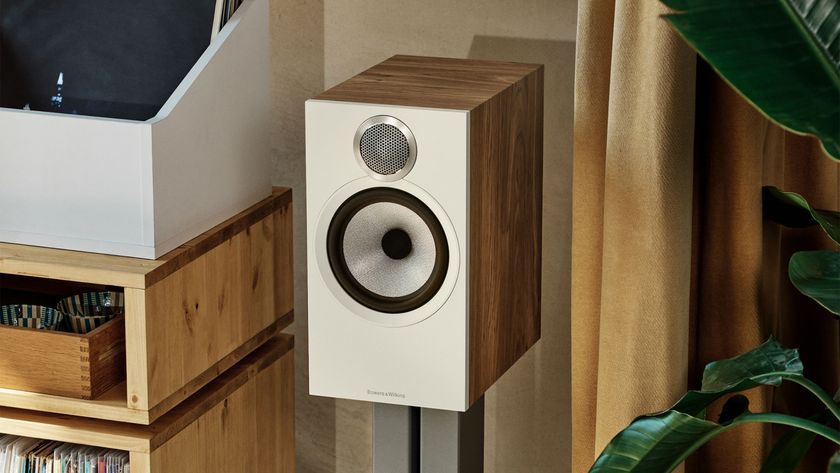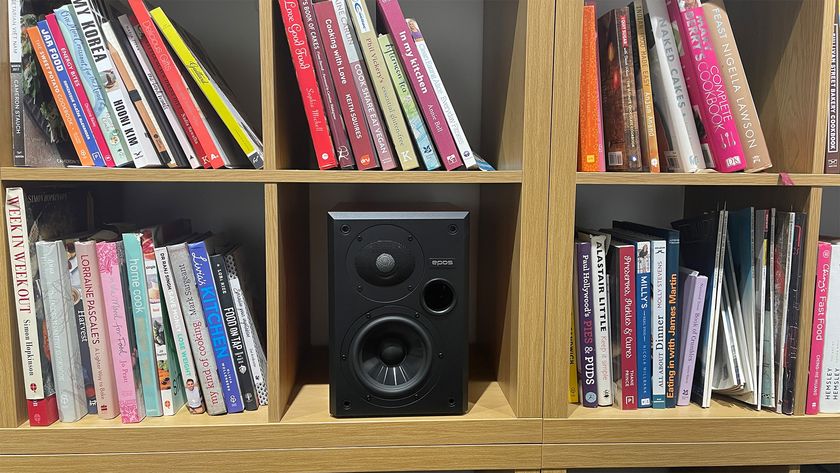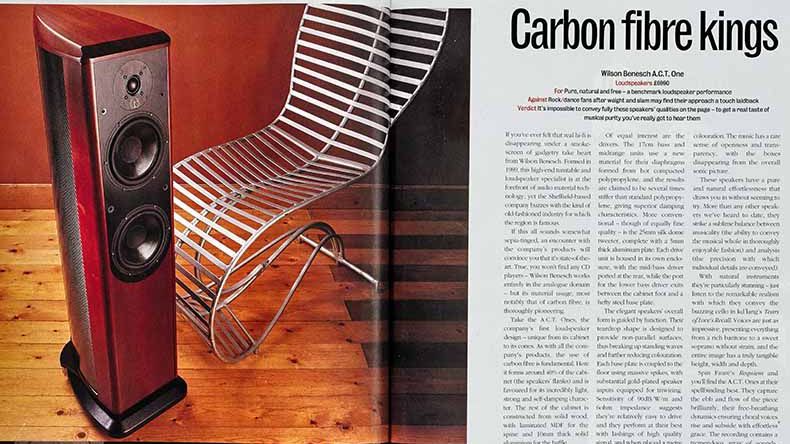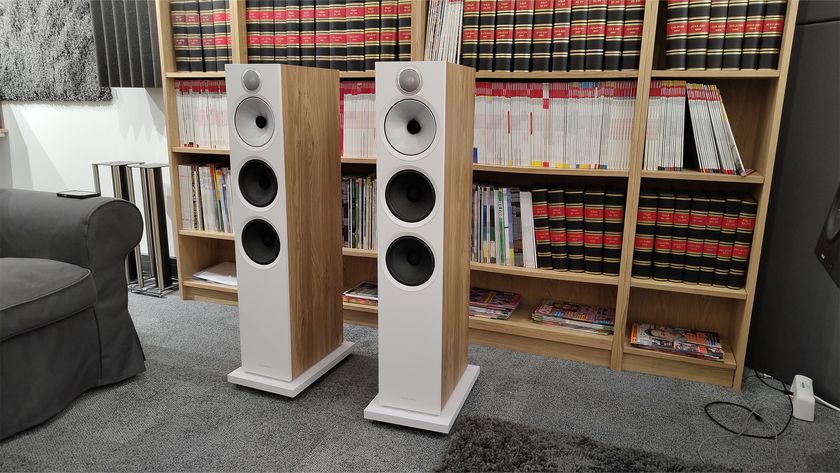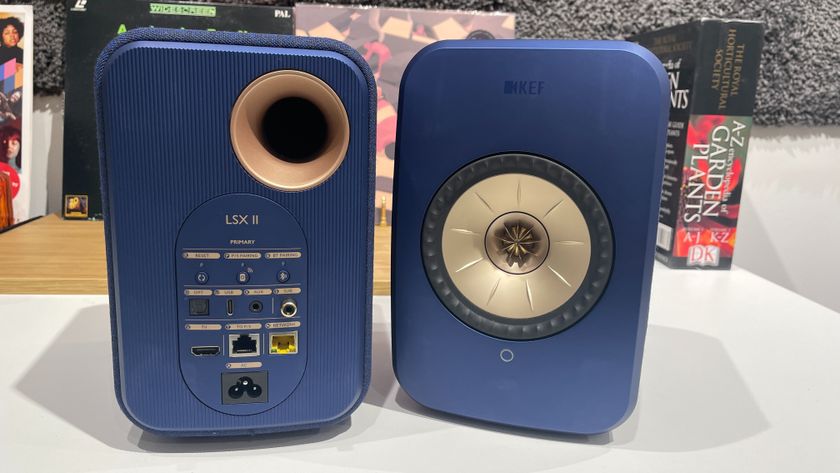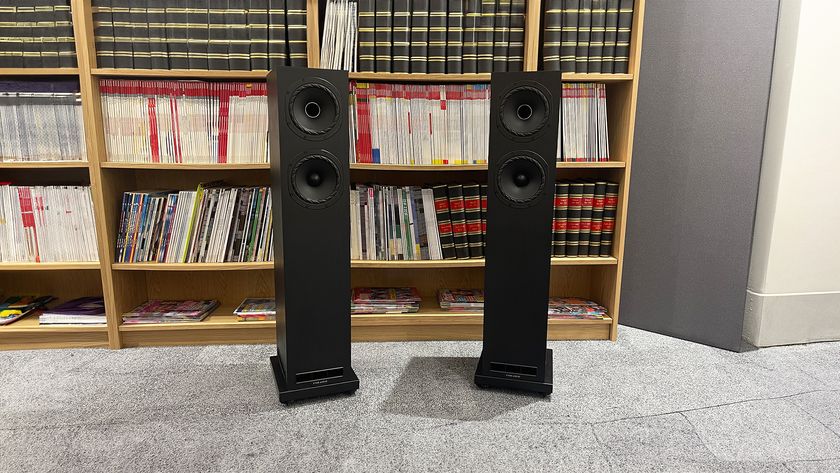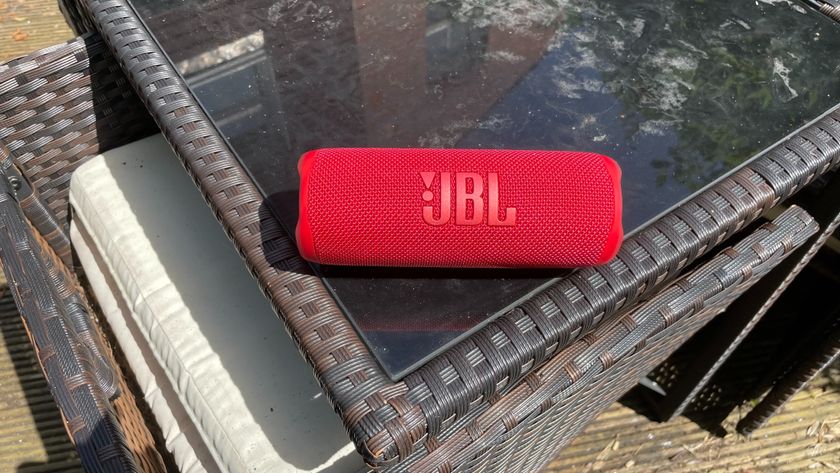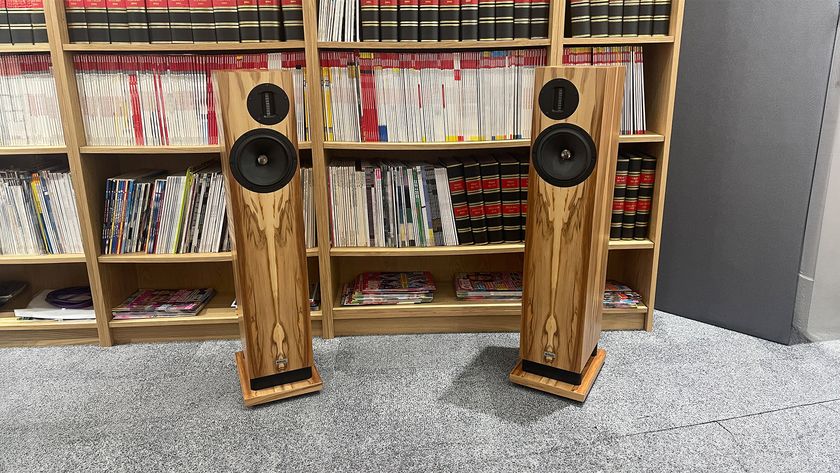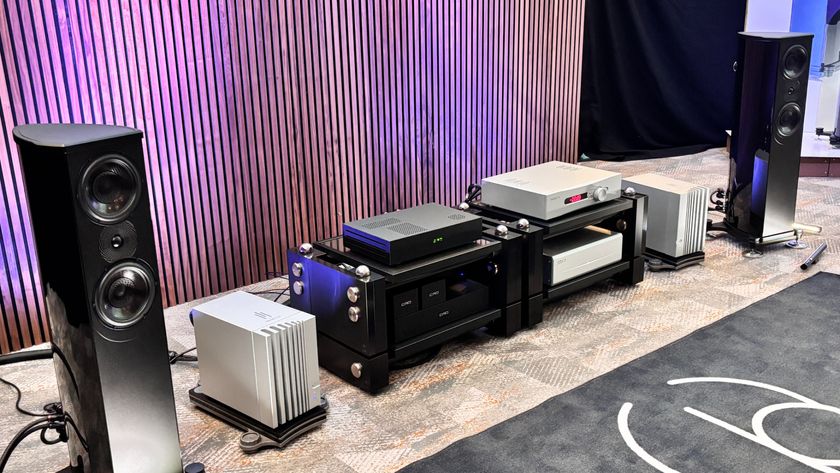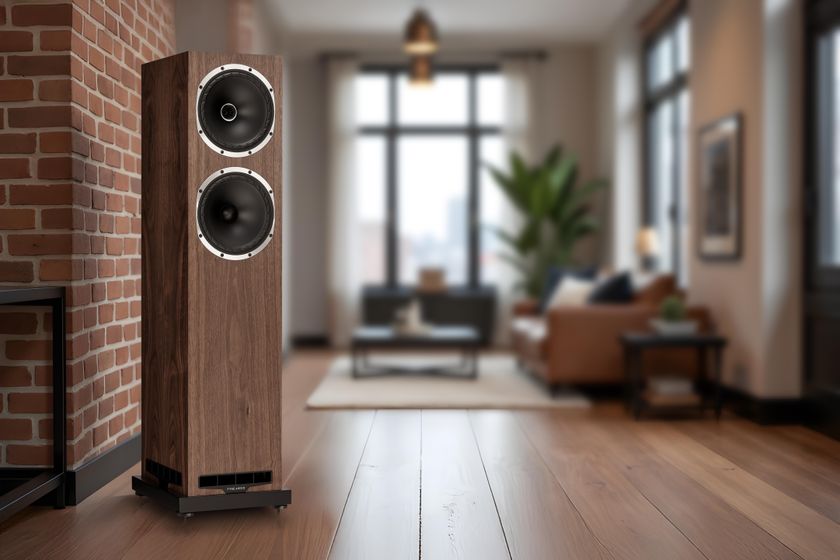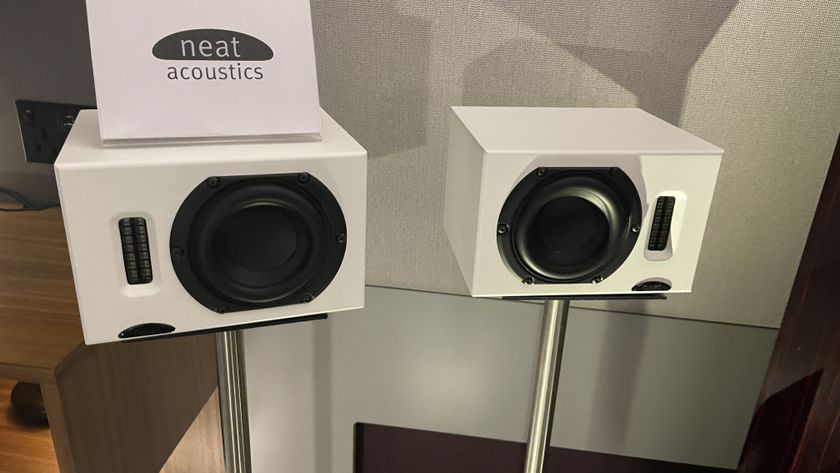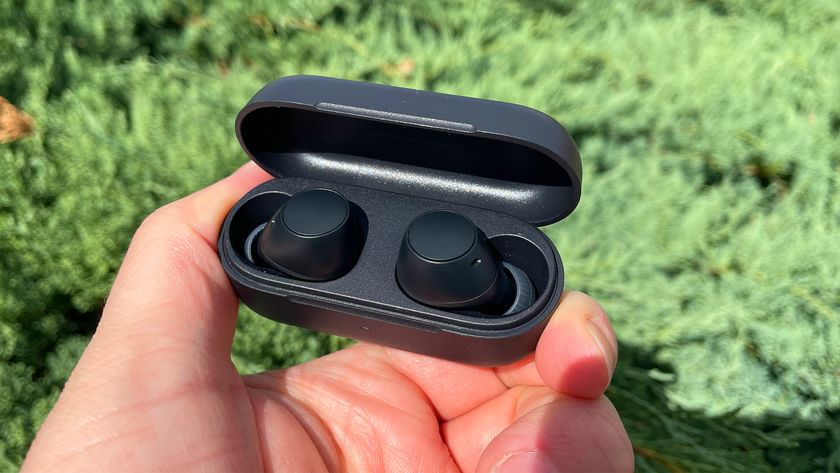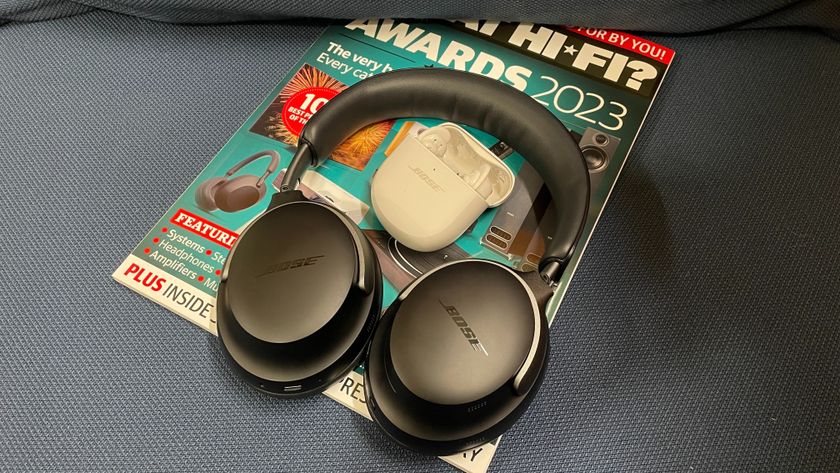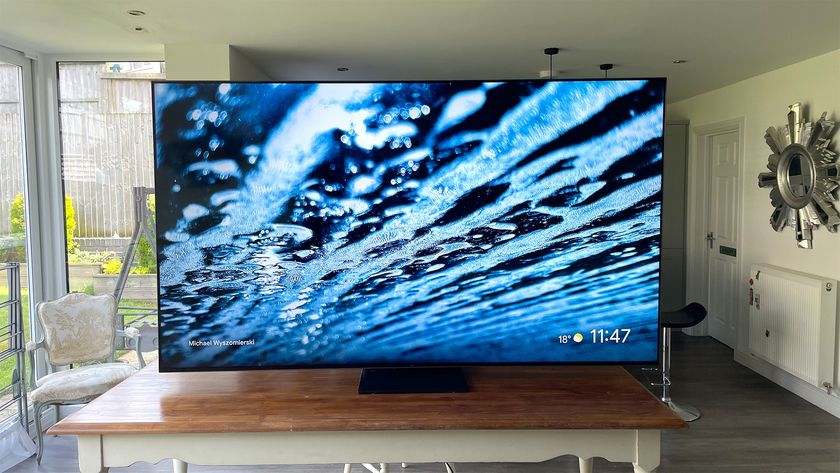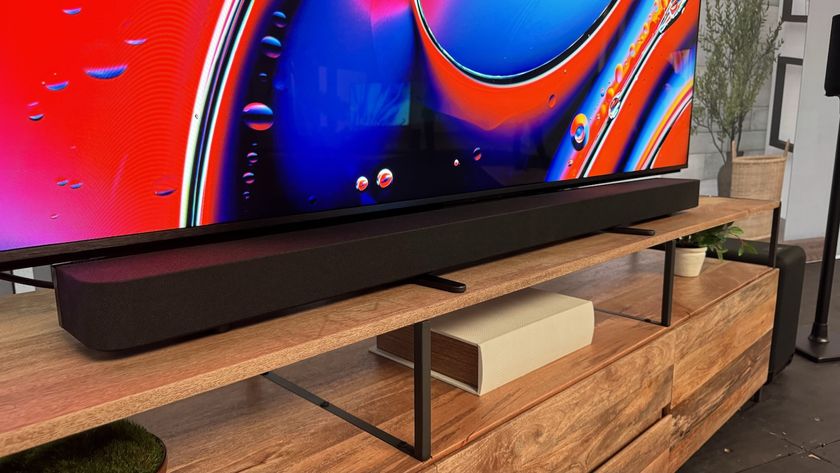Best KEF speakers 2025: budget, premium, bookshelf and wireless systems
The best KEF speakers money can buy
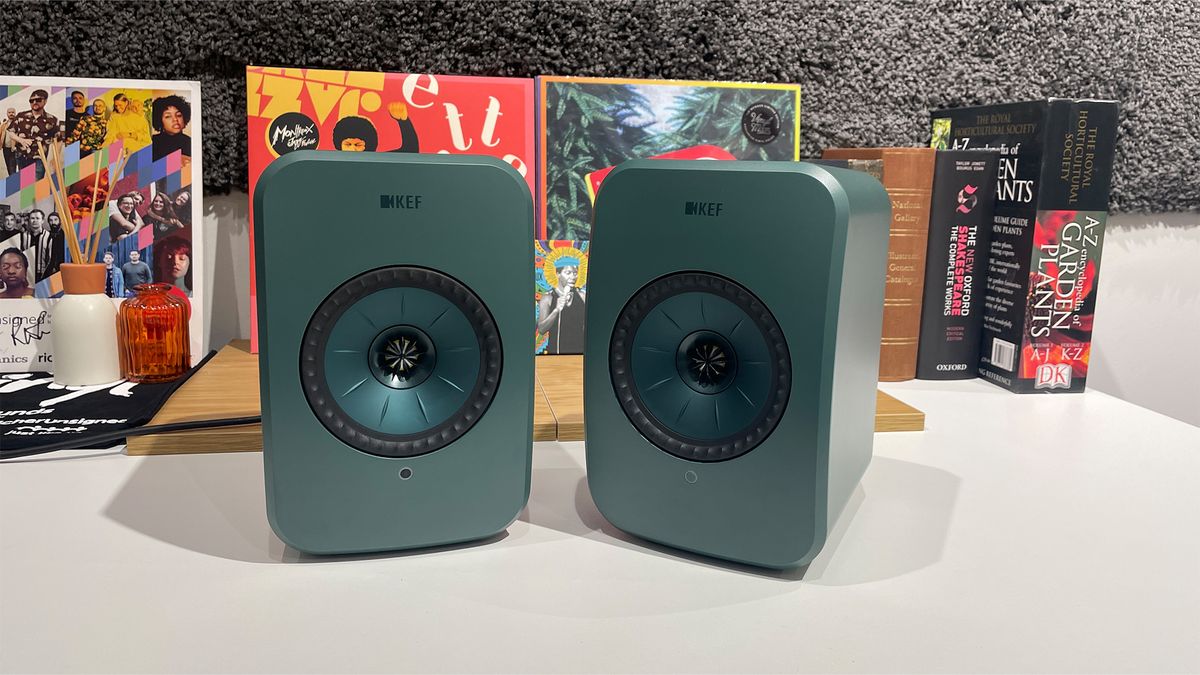
KEF is one of the leading lights of British hi-fi. Over its 60- year history, it has built a reputation for making classy, superb-sounding speakers.
And they don't come much classier or more superb-sounding than the below. Each pair of speakers in our list has earned five stars from us. As well as sounding great, they must have all the right connections and stellar build quality in order to achieve a perfect five out of five.
We've been reviewing KEF speakers almost as long as it's been making them. The units themselves might have changed a lot over the decades, but our criteria haven't. We put each pair of speakers through their paces not only standalone, but compared to their nearest price rivals. We reach review verdicts as a team to eliminate personal bias, and are proud to have never been swayed by marketing talk or advertising dollars. We've been the home of honest, unbiased reviews for nearly 50 years, and intend to carry on for many more. For more on our reviews process, see the how we test section below.

Writing about speakers for 20 years, you're exposed to all sorts of claims, some more spurious than others. But in my experience, KEF's speakers always deliver, consistently ranking among the best around for build, sound quality and innovation. And as this collection of five-star speakers shows, the brand has been on fire of late, picking up no shortage of What Hi-Fi? Awards.
The quick list
The guide below shows all the current KEF speakers we rate highly and recommend across all budgets. The list is split between KEF's passive stereo speakers and the active wireless speaker systems that come with amplifier, streaming and connections built into the speakers.
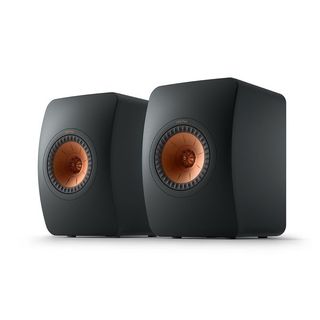
A reworked driver array makes the LS50 Meta the best passive standmounters for most people.
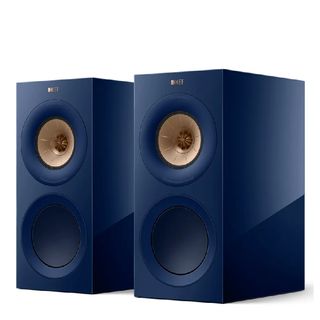
The R3 Meta are wonderfully transparent, refined speakers that are hugely entertaining performers, too. And they're not too expensive.
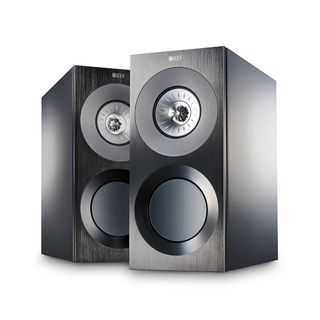
A superb all-round package that combines excellent sound with clever engineering and impressive build quality. If money is no object...
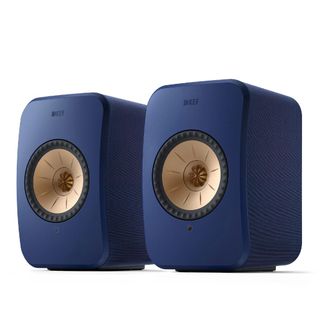
The KEF LSX II is a fantastic, multi-talented streaming system perfect for smaller rooms.
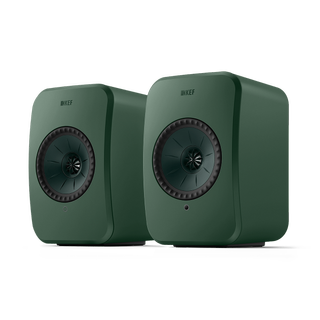
This stripped-back take on the LSX II comes with a lower price tag, making it very tempting to those on a tighter budget.
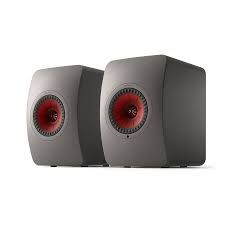
Ample connections make this a superb all-in-one music system for those shopping around the mid-range.
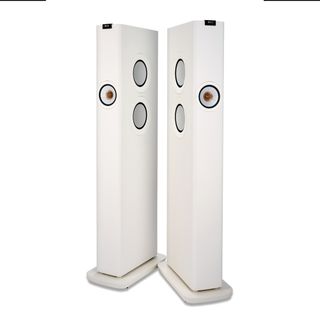
The KEF LS60 Wireless all-in-one hi-fi system combines eye-catching looks with a suite of useful features and outstanding sound quality.
The best KEF speakers we recommend in 2025
Best passive overall









Specifications
Reasons to buy
Reasons to avoid
The original LS50 speakers had little wrong with them but after eight years, KEF figured they deserved a fresh look. With the LS50 Meta, the British audio brand has delivered a truly worthy upgrade.
The LS50’s Uni-Q driver array, where the tweeter sits in the throat of the mid/bass unit, has been thoroughly reworked, taking in all the refinements that KEF has developed over the past eight years and adding its much-heralded Metamaterial Absorption Technology (MAT). MAT is KEF’s way of coping with the sound that comes off the back of the tweeter dome; a plastic circular maze of tubes on the back promising greater absorption for cleaner, less distorted highs.
While the basic sonic character is instantly familiar, the Meta speakers have gained a level of clarity and finesse the originals only hinted at, sounding clean while still offering muscle and dynamics. Sonically, they're everything you want KEF speakers to be, offering that balance and substance that only the finest performers can achieve.
We loved the originals, but the LS50 Meta takes the performance to a notably higher – and Award-winning – level. The best overall option for most people.
Read the full KEF LS50 Meta review
Best mid-range passive








Specifications
Reasons to buy
Reasons to avoid
KEF's innovative MAT took the performance of many of its speakers to the next level. It was only a matter of time before the tech was integrated into its 2023 R Series of speakers, and when it was incorporated into the premium R3 Meta standmounter (combined with the Uni-Q driver array), the resulting success felt inevitable.
The three-way R3 Meta are gorgeous-looking speakers with impeccable finish and build quality. KEF's 12th-generation Uni-Q driver array has been tweaked to accommodate the puck-sized MAT contraption (which absorbs 99 per cent of unwanted back radiation from the tweeter), and the resulting sound is astonishingly clear and insightful.
The KEFs have a graceful nature to them that hides just how accomplished they are, so much so that you'll find them a pleasure to listen to no matter the genre. They’re wonderfully transparent, at ease with the full gamut of musical diversity: heavy metal, ’90s pop and classical works are all played over our testing period and the KEFs take it all in stride, simply relaying the music as faithfully as possible.
If you want bigger, bolder sound than the LS50 Meta (and can afford the next step up), this R3 Meta comes with a hearty recommendation.
Read the full KEF R3 Meta review
Best premium passive








Specifications
Reasons to buy
Reasons to avoid
Much like the KEF R3 Meta speakers in this list, KEF has updated its higher-end Reference 1 speaker with its innovative Metamaterial Absorption Technology (MAT), which absorbs around 99 per cent of the unwanted, distorting sound waves from the back of the tweeter. And once again, it's done so with great success.
Adding MAT to KEF’s trademark Uni-Q driver array – where the 25mm aluminium tweeter sits in the throat of the midrange unit – is a lot more involved than just plonking the tech on the back of the driver. In the Reference 1 Meta, it involves significant re-engineering. The company has taken the opportunity to add a whole host of refinements to the array’s structure, motor system and geometry to eke out a better performance. The Uni-Q array is even decoupled from the Reference 1 Meta’s beautifully built cabinet to reduce the amount of vibration transmitted into the enclosure.
And KEF’s engineers have done a stellar job with these speakers. The original Reference 1 were great, but the sonic refinements brought about by the Meta upgrade are significant. The soundstage is expansive and layered, they deliver the music’s dynamic shifts with conviction, they're beautifully transparent and tonally balanced and rhythmically agile all at once.
At the time of writing, it is hard to think of a more rounded alternative for anything at this high-end level. Take care with the partnering system and these KEF speakers are sure to entertain.
Read the full KEF Reference 1 Meta review
Best wireless system







Specifications
Reasons to buy
Reasons to avoid
Aesthetically, not much has changed between the LSX II and their predecessors, the wonderfully expressive original LSX model. The all-in-one speakers, with amplification, streaming and connectivity all built in, look identical to their predecessors and feature the same 11th Generation Uni-Q driver, too, but there are some big changes elsewhere that take things to a new level.
Namely, more connection options. The first is HDMI ARC and the second is a USB-C connection for connecting to a TV and laptop respectively. Like other KEF wireless speaker systems, they also have an Ethernet port for connecting the speakers directly to your router, or a switch and a second port which you use to connect the supplied ethernet cable between the speakers. This is required if you want native playback of 24-bit/96kHz digital music files (anything higher than this is downsampled to 24-bit/96kHz).
The LSX II turn in a confident musical performance, with a real sense of refinement. They retain a nice sense of rhythm, with bags of warmth. KEF's winning formula just got that little bit better, and it's no surprise to see them bagging successive What Hi-Fi? Awards as a result of their efforts.
Read the full KEF LSX II review
KEF wireless speaker systems compared, from LSX II to LS60 – which one should you buy?
Best budget wireless system















Specifications
Reasons to buy
Reasons to avoid
As you can see above, the LSX II is a fantastic wireless speaker system. But now comes the LSX II LT – which is basically the same system but slightly stripped back, and with a lower price.
KEF has culled the wireless link between the speakers, the aux input and a few colourway options. And that's it. You still get the same core offering, but for just £899 / $999 / AU$1695. On paper, that's pretty compelling.
In the flesh, they're even more appealing. Virtually indistinguishable from the standard LSX II, they're dependably solid and well made. The ridged back panel is a nice touch, even if you don’t see it much, while the smooth, unshowy cabinets never seem as though they’ll be susceptible to scuffs or markings.
While you lose the aux input, you still get the USB-C, an HDMI ARC port for your TV, an optical input and even a subwoofer output. They only require a single connection to the mains too (with the LSX II, both speakers have to be plugged in), with an upgraded power supply simplifying your setup.
All the main streaming services are here, though unlike the LSX II, the LT aren't Roon Ready.
Thankfully there's no compromise in the audio department. The LT sound is solid, crisp and bassy, with plenty of punch and a great sense of propulsion. The top end rarely gets over-enthusiastic, and the ample bass never becomes flabby. They offer a lot of what made the LSX II Award-winners, with very few compromises.
Read the full KEF LSX II LT review
Best mid-range wireless system








Specifications
Reasons to buy
Reasons to avoid
The follow-up to the outstanding first-gen KEF LS50 Wireless speakers improves on greatness – no easy feat, even for an audio brand as surefooted as KEF.
Like their illustrious predecessors, the new LS50 Wireless II serve as a superb all-in-one system (streaming and amplification are built in) by dint of their advanced connectivity. Improvements include upgraded components and a new KEF Connect app where you can access the likes of Tidal, Qobuz, Amazon Music and Deezer. Not that you'll need to reach for any of the aforementioned apps; these speakers are capable of streaming via AirPlay 2, Google Chromecast and Bluetooth, and are also Roon Ready. You’ve also got an array of digital audio inputs – HDMI eARC, optical and coaxial – plus a 3.5mm aux input. Hi-res support extends to 24-bit/384kHz, MQA and DSD256 files, too.
KEF's striking design is matched by stunning sonics, enhanced by refreshed Uni-Q drivers and KEF's all-new MAT absorption technology. The presentation is spacious and the addition of the new MAT technology can be heard in the refined treble and clean mids. The whole presentation has been opened out, that extra room not only filled with subtler, more precise detail, but also allowing for greater instrument separation that makes its delivery sound much less congested by comparison.
Quite simply, if you're in the market for a high-fidelity all-in-one system packed with streaming smarts (and want a bigger sound than the smaller LSX II can deliver) this sophisticated sequel should be top of your list.
Looking for a similar concept in a floorstander instead? See the KEF LS60 Wireless system below.
Read the full KEF LS50 Wireless II review
Best premium wireless floorstanders
















Specifications
Reasons to buy
Reasons to avoid
For KEF's 60th anniversary, the British company pulled out all the stops – it launched one of its most challenging products to date, the LS60 Wireless, a floorstanding sibling to its fantastic LS50 Wireless II all-in-one hi-fi system.
They're considerably slimmer than the standmount LS50 Wireless II, and house a new (12th) generation of KEF's Uni-Q driver – the smallest it's ever produced, in fact. There's also a tweeter gap damper and a new Z-Flex surround to aid dispersion and reduce distortion.
It all adds up to a phenomenal sonic package – producing possibly the finest audio we’ve heard from such a product so far. The LS60 Wireless kick out an immersive and focused stereo image with plenty of width and height, but that never sounds stretched. You'll struggle to believe such a weighty sound is coming from such slim towers.
Add to that a considerable feature set, including multiple streaming services, 24-bit/384kHz peak file support, DSD256 support and native app access, and you've got some of the best all-in-one speakers ever made in floorstander form.
Read the full KEF LS60 Wireless review
Also consider
The best alternative speakers we've tested:
KEF Q Concerto Meta: This entry-level Q-series model just missed out on a place in the main list, but not because of its quality – it earned five stars in our review. Rather we prefer the LS50 for a very similar price. But with Meta technology and a huge performance leap over its predecessor, it's still a fine option.
Bowers & Wilkins 606 S3: The larger standmounters in B&W's 600 S3 range certainly have a lot going for them – they're What Hi-Fi? Award winners, in fact. With a mature presentation, a titanium tweeters and new speaker terminals, they're a great option at this price.
Wharfedale Diamond 12.1: These bookshelf speakers are wonderfully composed, with a surprisingly refined sound for the price. The best budget hi-fi speakers going.
How to choose the best KEF speakers for you
If you've decided your next speakers will be from KEF, you've already narrowed down from a field of superb choices of the best speakers you could buy today. Whether it's down to their aesthetics or reputations, KEF's current speakers are a great choice as this list of five-star reviews shows.
Choosing which KEF speaker is best for you is the same as choosing any speaker: do you require a standmounter or floorstanding model, what's your budget, do you need passive stereo speakers to go with your existing separates system or are you after a minimal all-in-one wireless speaker system?
Most of KEF's speakers feature the firm's clever and now-iconic Uni-Q driver arrangement. Rather than having a separately mounted tweeter and midrange driver, the tweeter in a Uni-Q driver is set into the centre of the midrange. This allows for better time alignment and results in the more cohesive sound we hear from current KEF speakers. A simple idea – but it's what sets the company apart from the pack. Another successful innovation seen in the latest models is the addition of Metamaterial Absorption Technology (or MAT), which is a small maze-like structure that absorbs 99% of unwanted rearward sound from the back of the tweeter to deliver cleaner, better high frequencies.
More importantly, KEF has kept pace with the times and diversified into wireless speaker systems alongside passive speakers, with its line of LS wireless all-in-one streaming systems all gaining five-star reviews and setting the standard for speaker systems of this type. These products offer a full system without the need for multiple boxes. They also include ample physical connections alongside all the wireless options, making them a great choice if you stream alongside listening to more traditional media like vinyl and CDs.
How we test stereo speakers
Here at What Hi-Fi? we review hundreds of products every year, including no small amount of speakers of all shapes, sizes and types. So how do we come to our review verdicts? And why can you trust them?
The What Hi-Fi? team has more than 100 years experience of reviewing, testing and writing about consumer electronics. We have state-of-the-art testing facilities in Reading and London, where our team of expert reviewers do all our in-house testing. This gives us complete control over the testing process, ensuring consistency. We always ensure we spend plenty of time with the speakers, trying them with different electronics, in different positions and with different music.
All products are tested in comparison with rival products in the same category, and all review verdicts are agreed upon by the team as a whole rather than a single reviewer, helping to ensure consistency and avoid individual subjectivity.
From all of our reviews, we choose the top products to feature in our Best Buys, such as this one. That's why if you take the plunge and buy one of the products recommended above, or on any of our other Best Buy pages, you can rest assured you're getting a What Hi-Fi?-approved product.
For more info, see the how we test products page.
MORE:
Check out how to choose the right speakers, part one: research
Then how to choose the right speakers, part two: buying
Finally how to choose the right speakers, part three: set-up
F.A.Q.
Why you can trust What Hi-Fi?
Is KEF a premium brand?
It's more premium than some, certainly, but its speakers are far from the most expensive around. The KEF Reference 1 Meta retail for around £7500, but it also has much more affordable models for under a grand. Want something cheaper? Check out our guide to the best budget hi-fi speakers.
Is KEF made in the UK?
The brand started life as British – KEF stands for Kent Engineering and Foundry, which is its original site. But in 1992 it was bought by the Hong Kong-based Gold Peak Group. It's now owned by GP Acoustics International, which is a subsidiary of Gold Peak.
Recent updates
- 13th January 2025: Flipped to the new Buying Guide format. Rewrote intro. Added 'FAQ' and 'Recent updates' sections.
- 25th June 2024: Added KEF LSX II LT. Dropped KEF Egg as no longer on sale.
Today's best KEF speaker deals
Get the What Hi-Fi? Newsletter
The latest hi-fi, home cinema and tech news, reviews, buying advice and deals, direct to your inbox.
Joe has been writing about tech for 20 years, first on staff at T3 magazine, then in a freelance capacity for Stuff, The Sunday Times Travel Magazine (now defunct), Men's Health, GQ, The Mirror, Trusted Reviews, TechRadar and many more. His specialities include all things mobile, headphones and speakers that he can't justifying spending money on.
